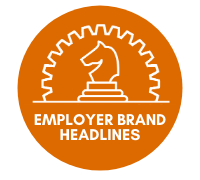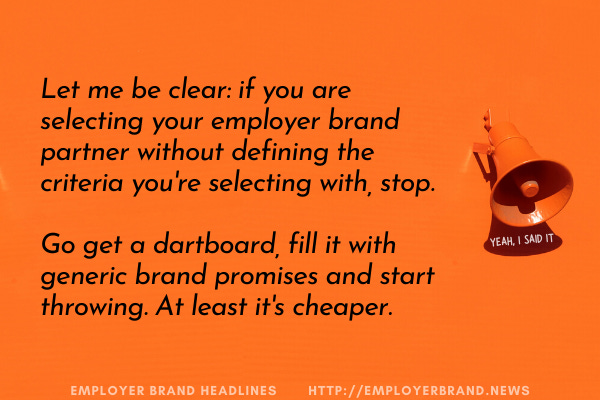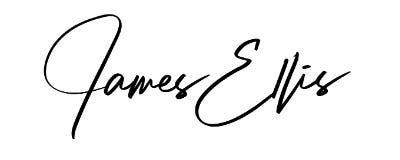Employer Brand Headlines: The "Perfect Way" Edition (#83)
Our mission: Help you understand your employer brand better and make it work for you.

In this issue
How are you picking?
Remote creativity
The virtues of arguing
Defining your brand voice
The big idea
This is going to make a lot of people mad. I’m almost sorry.
What kind of car should you get? If you go online and ask what kind of car is best, you’ll be hit with dozens (if not hundreds) of questions. City or suburb? Just you or a family? How big? Fast or safe? Reliable or sexy? Gas or electric? Gonna tow anything? Do you camp? What’s your garage/parking situation? etc. Anyone who tried to tell you what the best car was without learning a LOT about you is a complete fool. The Mini Cooper you love won’t work for a family of four. You might lose that Honda in a parking lot, but it never stops working. Subaru vs Porsche, Mazda 4-door vs full-cab pick-up? The question of “what’s the best car?” is so unanswerable, they pretty much only show up on Yahoo Answers to troll the naive.
So how come whenever someone asks what employer branding partner they should use, a dozen-plus people chime in and drop names on who they used? How come the request for names isn’t followed by a flurry of questions? Big company or small? What industry? What’s the internal appetite for change and leadership’s willingness to accept unpleasant findings? Do you need data-driven or creative-driven? Does the project require deep research and interviewing 100 people or is a minimum viable product enough? Is leadership going to demand an industry “name,” or is a smart process/framework more interesting? Is there an assumption that they will help you sell the brand internally? Is there an assumption that they will help you activate it? The list goes on and on.
But I never see those questions. Never. It’s like when someone asks for a “good” contractor locally, everyone names who remodeled the bathroom or fixed a door out of plum (as if those two jobs could be interchangeable).
There are so many different approaches and philosophies to building an employer brand (EVP, brand promise, call it what you will), asking for people to help you is like asking what car you should buy.
So let me be clear: if you are selecting your EB partner without defining the criteria you’re selecting with, stop. Go get a dartboard, fill it with generic brand promises and start throwing. At least it’s cheaper.

I’ve sold brand services for multiple agencies, so I know for a fact that the way that Newly-Renamed-Mega-Agency builds brands and the things it offers is as radically different from that three-person boutique agency as it is from the European shop with all that data as it is from the agency winning awards with that crazy-sexy-cool creative. They are all so different from each other, that if you removed the term “EVP” from your RFP, these companies wouldn’t be in the same industry let alone pitching for the same work.
(Frankly, if you pick your partner based on how much you like the people who pitched you, you’re nuts. You’re picking the car based on the coffee in the dealership office.)
Want to get what you really want out of your partner? Here are the questions you and your team need to talk through before starting your RFP:
Size: Would you rather work with a small company with potentially fewer resources or a massive company for whom you are barely a number?
How: What should an EVP be built on? A framework? Interviewing a hundred staff? External research data? Some custom/proprietary process? Walking around and chatting up employees? What the owner thinks it needs to be?
Why: No really, what is the real reason you’re thinking about building an EVP? What problem are you trying to solve? Where is that problem coming from?
Politics: Will you need more help building the brand statement, or getting all the various business leaders to buy-in? How much hand-holding will people above you really need?
Appetite for the new: Is the partner allowed/expected to be completely independent, or should they pretty much deliver a brand idea that everyone mostly/kinda expects? (Don’t laugh: no one assigns HR projects like these expecting anyone to tip over the apple cart)
Afterward: Do you expect your partner to go home once this project is delivered? Or do you need them to build content, social media, and other activation materials for you?
Criteria: In the end, what’s the most important result: you get a brand that “feels right,” you get a brand that is based on unimpeachable evidence, you get a brand that is immediately actionable, you get a brand that feels cool (and wins awards), or you get a brand solves a specific problem?
I’m probably short a few questions, but if you and your team get their hands dirty with these, you’ll be much better prepared, not just on how to pick a partner, but how to sell your choice internally.
Headlines!
The Three Things Disney Learned about Remote Creativity and Collaboration.
The reigning royalty of creativity talks about how the lean in and learned how to use remote to enhance their own creativity collectively.
What Can Brand Identity Give Me That I Didn’t Have Before?
For those of you with recruiters or business leaders who still don’t get the power of what you bring to the table, here are some strong talking points: Effortless marketing (well, “effortless” may not be exactly right, but you get the idea) and ‘brand building is business building’ will get your conversation off to the right start.
Is organizational culture the hero or villain of your pandemic story?
As we get (closer) to the light at the end of the tunnel, how will you tell your company’s covid story? What did you learn? What did you sacrifice? How are you better now than you were one year ago?
www.strategy-business.com • Share
Arguing your way to better strategy
Maybe it’s weird that I can pinpoint 90% of my formative years into a single 9 months in Jesuit high school, but I love arguing. I lovelovelove it. I don’t argue to win, but rather to learn (which is my current politics turns my stomach). So I loved seeing this conversation around how a few people in a room can argue their way to something as uncompromising as a strong strategy.
www.strategy-business.com • Share
Communication hats: Understanding your audience and their assumptions
What assumptions are you making about your prospects and candidates? That they are looking for a job? That they yearn for something new? That you have something they want? Yeah, maybe you need to example those assumptions before you go building messaging strategies around them.
www.printelligenceonline.com • Share
I’m no expert here, but crafting a brand voice seems to be one of those things you need to try and do a BUNCH of times before you can build a voice that sounds like itself but isn’t a mynah bird, repeating the same few phrases over and over. But getting it right yields lets you talk more directly to “your people” without constraining your creativity (see Wendy’s Twitter account or Oatly’s ads).
www.brandingstrategyinsider.com • Share
Building Your Corporate Culture
Having not read this person’s book on “building culture,” I started skeptically. When you define culture as “a set of behaviors,” you’re able to make some kind of change, but I can’t really call it culture. For my money, culture is how you make decisions when there’s no one responsible for that decision. It’s the unspoken agreements and assumptions about each other (and the ‘us’) that move businesses in a given direction. This article is all about intentional habit building, which is crazy useful, but I cringe when it’s framed as ‘culture.’
www.brandingbusiness.com • Share
The Web Is a Customer Service Medium
This is a ten-year-old article on the the nature of the web, and it references places I haven’t been in years. But stick with it. At the end, it reveals something very real, not just about the web, but about the world of our kind of work: the “why wasn’t I consulted?” question. In a place where the boundaries aren’t well-defined (ahem), how do you build something that gets buy-in and drives value when everyone (in your org) thinks they have the right to offer their opinion on your work.
5 Challenges Facing CHROs at Midsize Companies Today
If you can’t figure out how to help your CHRO solve some of these (and make yourself invaluable), you’re missing a golden opportunity.
The Five Rs of an Effective Briefing | Premiere Speakers Bureau
When you get your chance to brief leadership on your employer brand work, do it right. You don’t know when the next chance will come.
Quick hits
Tip of the week
What’s one email you send every week (at least)? Is it the explanation of how to use a piece of content? Is it directions to a set of resources? Is it a request to leave a review? Automate it. Both outlook and Gmail has so many automation tools that you look at the kinds of things you’re sending over and over again, you can automate your responses, saving 30-60 minutes of time a week.
Inside the fortune cookie
“'But which is the stone that supports the bridge?‘ Kublai Khan asks.
“'The bridge is not supported by one stone or another,’ Marco answers, ‘but by the line of the arch that they form.’”
-Italo Calvino
One last thing
Clubhouse update! Tuesday at 8:30AM Central, we’re talking content marketing hacks. Bring your questions and ideas!
And since the Holland+James test went so well, we’re going to make it a regular thing! We’re going to take listener challenges and break them down for everyone. Got a challenge you want us to wrestle with? Tweet me @TheWarForTalent.
Thanks, everyone!
You may have noticed some changes to the look and feel (but hopefully not the tone) of the newsletter. What do you think? Is this better or worse? I’d love to hear your thinking.
And as always, when you reply to this email I will read your questions and comments. Is there any article I should be commenting on? A book? A podcast? Is there something you what to know? How can I help? Just reply to this email and it comes directly to me.
Cheers and thanks!
-James Ellis (LinkedIn | Twitter | Podcast | Articles)
Where the subject line came from:

Scritti Politti - Perfect Way (1985)

By James Ellis, Employer Brand Nerd
In a sea of content, how do you stay up to date on employer branding news? How do you know what's worth reading and what's just a waste of time?
So glad you asked! Here's a weekly digest of the best content to make you smarter about employer branding, curated by James Ellis.
In order to unsubscribe, click here.
If you were forwarded this newsletter and you like it, you can subscribe here.
Powered by Revue
James Ellis, 421 W Melrose, Chicago, IL 60657




